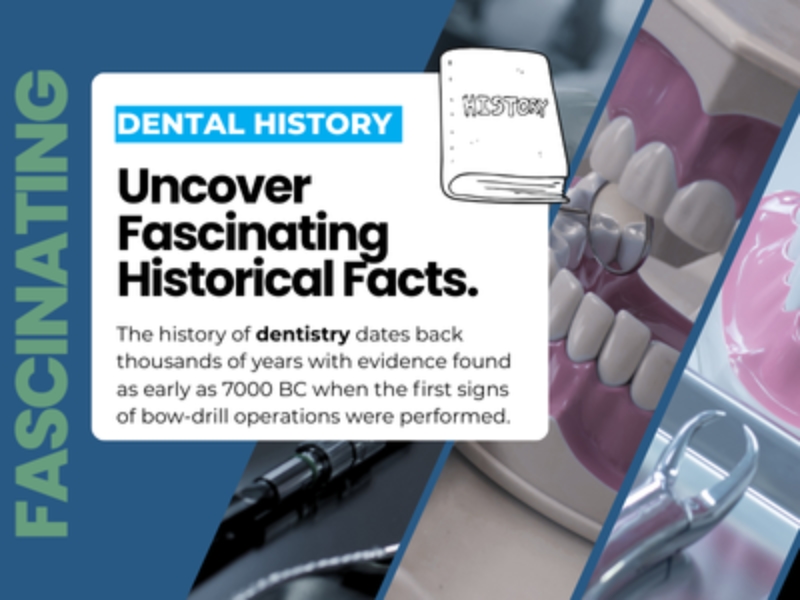The history of dentistry spans thousands of years and is intricately intertwined with the broader evolution of medical practices. The earliest evidence of dental practices can be traced back to approximately 7000 BC. Notably, a Sumerian text from the ancient Sumerian civilization, located in Mesopotamia, describes what could be considered one of the first instances of dentistry. This text refers to the belief in "tooth worms" as a causal factor of dental decay, reflecting the limited understanding of oral health at the time. Additionally, it highlights the initial use of bow-drill techniques for dental operations, demonstrating early innovation in dental care.
The earliest documented case of dental filling is believed to have occurred around 3800 BC in the area now recognized as Slovenia. This historical event marks a significant moment in the evolution of dental care, suggesting that as civilizations became more stable and organized, they developed increasingly sophisticated practices for oral health.
In ancient Egypt, dentists known as "leech" doctors utilized primitive tools crafted from materials such as metal and wood to address oral disorders, perform extractions, and manage dental pain. The Greeks further advanced the field; philosophers and physicians like Aristotle and Hippocrates documented various dental ailments and proposed methods for their treatment, emphasizing the importance of oral health in overall wellbeing.
The Romans played a crucial role in transforming dental care practices, developing a range of sophisticated tools that improved the efficiency and effectiveness of oral treatments. By the Middle Ages, dentistry began to emerge as a distinct profession, with specialized practitioners dedicated to various aspects of dental health and hygiene.
The 18th century marked a turning point in the field with the work of Pierre Fauchard, often referred to as the "father of modern dentistry." His groundbreaking book, "Le Chirurgien Dentiste," published in 1728, laid the foundational principles of modern dental practice, introducing techniques for the restoration of teeth, proper oral hygiene, and a systematic approach to dental care. The subsequent 19th century witnessed further advancements, including the development of anesthesia, which revolutionized dental procedures by reducing pain and discomfort, as well as the establishment of formal dental education and professional associations.
In contemporary practice, dentistry encompasses a diverse range of services, from restorative and cosmetic procedures to specialized fields such as orthodontics, prosthodontics, oral surgery, and periodontics. The profession continues to evolve, driven by cutting-edge technology, innovative research, and a heightened awareness of the importance of oral health in overall health and wellbeing. As a result, dental professionals today are equipped with advanced tools and techniques that greatly enhance patient care, ensuring a higher standard of oral health for individuals across the globe.
